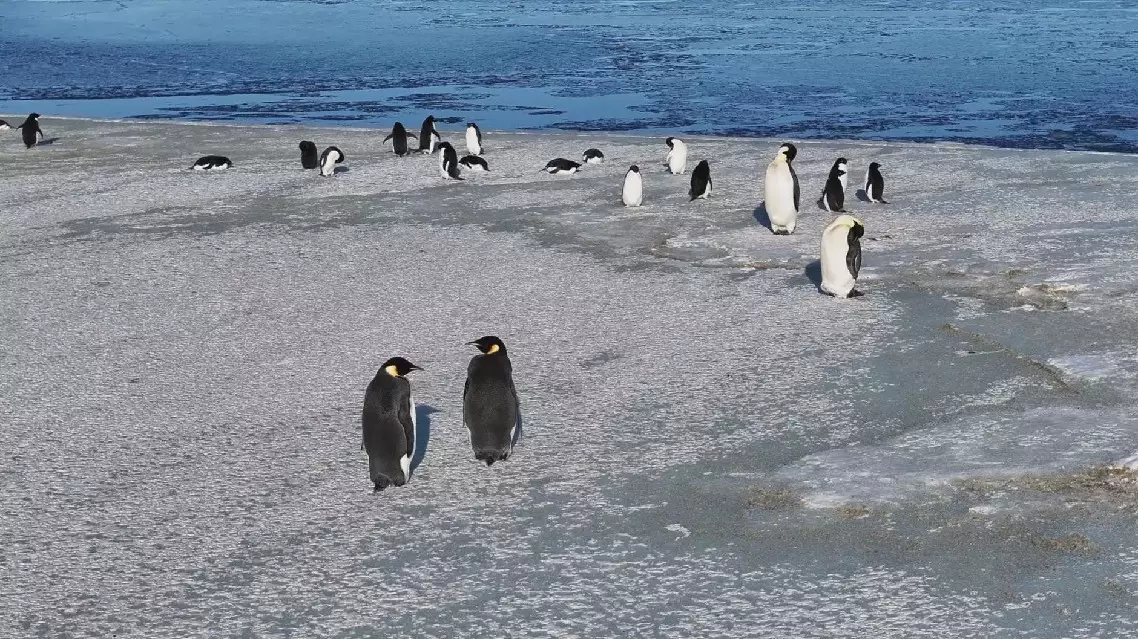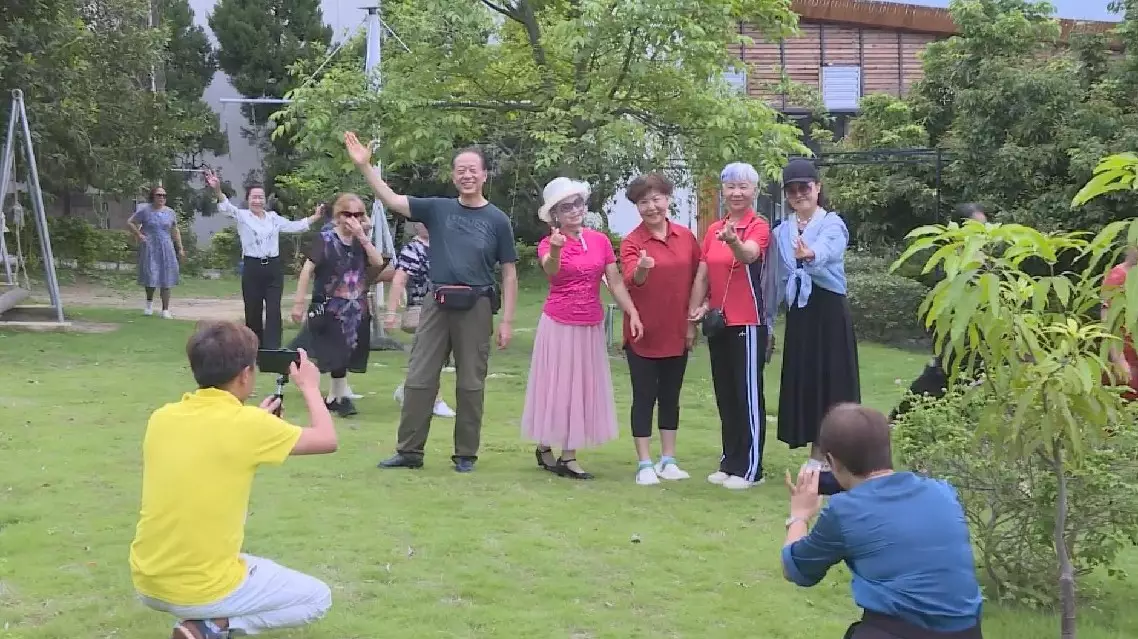China's 41st Antarctic expedition preparatory team member captured footage of penguins after they arrived at the Qinling Station in Antarctica, the country's fifth research station on the continent.
An ornithologist of the preparatory team used a drone to record the penguins spotted near the Qinling Station.
The station, located on the Inexpressible Island in the Ross Sea, was officially inaugurated in February. Covering an area of 5,244 square meters, the station is in a shape resembling the Southern Cross constellation, a unique design to honor Zheng He, a legendary admiral, navigator and diplomat in the Ming Dynasty (1368-1644).
About half of "Ross Sea" killer whale, 40 percent of Adelie penguins and 25 percent emperor penguins live in the Ross Sea.
There are approximately 18 species of penguins in the world, four of which breed in Antarctica. Among these are the Adelie penguin and the emperor penguin, both of which are commonly found around the Qinling Station.
Inexpressible Island, where the Qinling Station is located, has over 50 years of observation records of the Adelie penguin population, making it the first area in the Ross Sea region to conduct dynamic monitoring of these penguins. Each year, at least 20,000 Adelie penguins breed there.
Emperor penguin is the largest penguin, standing up to one meter tall and weighing between 20 and 35 kilograms. Emperor penguins breed in groups in Antarctica in winter. After breeding, emperor penguins will feed alone or in small groups in the coastal waters of the Southern Ocean.

China's 41st Antarctic expedition preparatory team captures footage of penguins
A growing number of seniors who are retired and energetic choose to travel and live in different places with a "migratory bird" lifestyle, injecting new momentum into the silver economy in China.
In a country so vast like China, the climate varies drastically from place to place, prompting many health-conscious retirees to move regularly to cooler places in the summer, and to warmer places in the winter.
Ms. Li, who is from northeast China's Jilin Province, fell in love with Xishuangbanna in southwest China's Yunnan Province, a place without winter, after her first visit in 2021.
Since then, she has come to Xishuangbanna to "spend the winter" and returns to northeast China in April to "spend the summer" every year.
"The good air quality makes me feel comfortable here. It's suitable for the elderly to live in for retirement. This is a place with abundant plants and the food price here is affordable," said Ms. Li.
Compared with traditional tourism, the pace of sojourn is slower and the duration longer, allowing people to enjoy a more relaxed and comfortable life.
From January to October this year, the number of tourists to Yunnan has surpassed one billion, with the average length of stay per tourist increasing from 2.8 days to 3 days.
"The good water quality, air, and the environment here make me want to stay even more, and I just can't bear to leave," said Xia Quan, another sojourner.
"We will provide different types of food based on where the people come from. For those coming from the north, we'll offer wheaten food. As for activities, we have places like game room and table tennis room for the elderly to enjoy their leisure time," said Yang Hongwei, an innkeeper.
Official data shows that China was home to 297 million people aged 60 and above by the end of 2023, accounting for 21.1 percent of the country's total population.
As a new generation of healthy, vigorous and richer Chinese adults enter retirement age, the number of old-age "migratory birds" is expected to keep growing in the following years.

Chinese retirees embrace "migratory bird" lifestyle, driving silver economy










